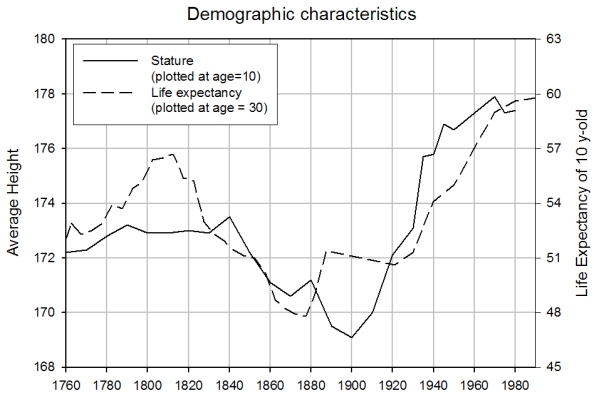
Today's Dinosaur Stories

Howard, I couldnt figure out how to turn it off. All I got was menu after menu. But theres no off switch. Todays beef is with todays world. It is a world of so many labor-saving devices that we must work night and day to keep up with them. They must be bought. Then serviced. Then repaired. Then replaced with something more up-to-date, which is to say, something that is an even bigger nuisance. It is true in almost all aspects of life. Finance as well as car maintenance. Things become more sophisticated and more complex. Risk goes up. And costs. And fragility. Is it worth it? The answer is usually no.
It is a complex world. There is a solution to every problem (even problems that dont really exist). And every solution comes with more new problems. Joseph Tainter was right. Society becomes more and more complex. Complexity sucks up resources. Eventually society goes broke. In todays installment, your editor returns to his farmhouse in rural Maryland, only a couple of miles from where he was born. His house has just been remodeled. It is so completely improved that it is almost unbearable. Howard, the builder, attempts to explain. Heres how our conversation went:
Yes, it is a little more sophisticated than what you had before.
I dont understand why the AC system cant have a simple off switch.
Well, you should never turn it off.
Why not?
Because, this house has a lot of fine woodwork and carpeting and so forth. You cant let it get too humid or the wood will swell up and crack and youll get mold.
Cant we just open the windows?
You dont have to open the windows any more.
Why not?
Because this is an energy efficient house. Its state-of-the-art. We replaced all the insulation with foam. The windows are super tight. And the temperature and humidity are automatically regulated.
But if it is so energy efficient, why is the AC system on all the time?
Thats probably not the AC you hear.
Then, what is it?
Its the air-exchanger.
Air exchanger? Whats that?
Well, the house is so tight that it doesnt get enough fresh air. So, we have an air-exchanger to bring in air from the outside.
Then why go to the trouble of insulating so much? Why not just leave the leaky windows?
Well, the air exchanger doesnt use much energy.
How about the humidifier?
No, that doesnt use much either.
And the de-humidifier?
Same thing. Very low energy use. All of this uses less energy than standard AC.
Sounds like they will use a lot more of my energy more bother more machines another control system another thing I have to figure out more manuals and service contracts that I have to keep another thing that will break down.
Hold on. These are very efficient and reliable systems. They shouldnt need too much maintenance.
I just want to turn them off and open the window. But I cant open the window, not with the AC running.
You dont need to open the window. This system allows you to control the flow of air.
But thats just the point. I cant control anything. Its all automatic. I cant even turn it off.
Well, your air temperature and humidity are controlled for you. And you also get fresh air when you need it. Its all state-of-the-art in home interior climate control.
When its too cold outside, the system keeps you warm. When its hot outside, it keeps you cool. When your humidity rises above 60%, the dehumidifier comes into service. When the humidity falls below 40%, the humidifier activates. And when the air gets stale, the air-exchanger turns on.
Why not just open the window?
Mr. Bonner, Im afraid youre out of touch with modern home technology.
Or a tech-challenged dinosaur in BioMickWatsons’ world :)
-—————————————————————–
In other Dinosaur news,
Does genetics explain height differences among Indians?
You know what the answer is, when the title starts with a question. Still, here is the relevant paragraph -
She found that the state domestic product at the birth year was a robust predictor of adult height. Yet some States are outliers; some north-western States like Jammu and Kashmir and Rajasthan had taller adults than the States incomes would have predicted, while some north-eastern States had shorter- than-expected people. So does genetics explain these outliers?
I have seen no clear and convincing evidence of genetic differences in height potential, either across populations within India, or across populations in different places in the world. Indeed, all of the evidence that I have seen points to the idea that populations with early life environments and care grow to similar heights, Ms. Coffey told The Hindu.
The observation matches what Americans saw historically.

or
In the late nineteenth century, the Netherlands was a land renowned for its short population, but today its population is among the world’s tallest with young men averaging 1.84 m (6 ft 0 in) tall.
Today: Americans once tallest but not anymore
